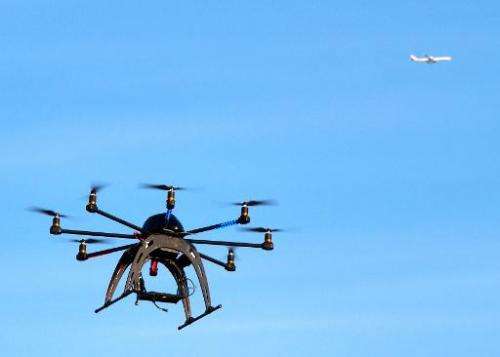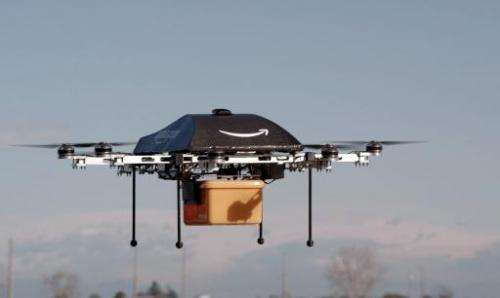US aviation agency to appeal drone ruling

The US aviation agency said Friday it will appeal the dismissal of a $10,000 fine it imposed on a Swiss entrepreneur who flew a drone over a college campus to make a commercial.
Enthusiasts of the unmanned aircraft are closely following Raphael Pirker's case, which they say could shape the development of small drones for civilian use—for instance in newsgathering or for wildlife protection.
The Federal Aviation Administration (FAA) had fined Pirker, known in drone circles as Trappy, in 2011 after he flew a small drone over the University of Virginia, shooting video to be used in an advertisement for its medical school.
It alleged that Pirker—who now runs a drone business in Hong Kong—had operated a drone without a pilot's license and in a "careless or reckless manner" in violation of a ban on using drones for money-making purposes.
But in a ruling Thursday, a National Transportation Safety Board (NTSB) judge granted Pirker's request for the civil penalty to be dismissed, saying the FAA lacks the legal authority to regulate small drones.
In a statement confirming it would appeal to the full NTSB, the FAA said: "The agency is concerned that this decision could impact the safe operation of the national airspace system and the safety of people and property on the ground."

'Held back'
Pirker's lawyer Brendan Schulman told AFP the case was having far-reaching consequences for the controversial but fast-growing drone industry.
"Various companies have been held back for seven years as a result of the FAA's purported ban on the commercial use of drone technology," Schulman said.
Timothy Reuter, founder of the Drone User Group Network, which brings together small-drone enthusiasts, said other nations have allowed drone entrepreneurship "for a number of years" already.
"We see commercial use as key to allowing this technology to reach its maximum potential to benefit our society," he told AFP.
In the run-up to Christmas last year, online retailer Amazon said it was looking into the use of drones to deliver packages.
Later, a brewer in Minnesota posted a YouTube video of a drone delivering a case of lager to a fishing hut on an icebound lake.
Campaigners for civil liberties have voiced concerns, however, that drones fitted with cameras or other surveillance gear could be used to infringe on individuals' right to privacy.
Pending the formulation of a clear set of regulations for drones, the FAA has advised that drones, like model aircraft, be flown no higher than 400 feet above the ground and away from populated areas.
The drone that Pirker used at the University of Virginia was a remote-controlled RiteWingRC Zephyr II "electric flying wing" with a 56-inch (1.42-meter) wingspan that weighed less than five pounds (2.3 kilograms).
© 2014 AFP



















